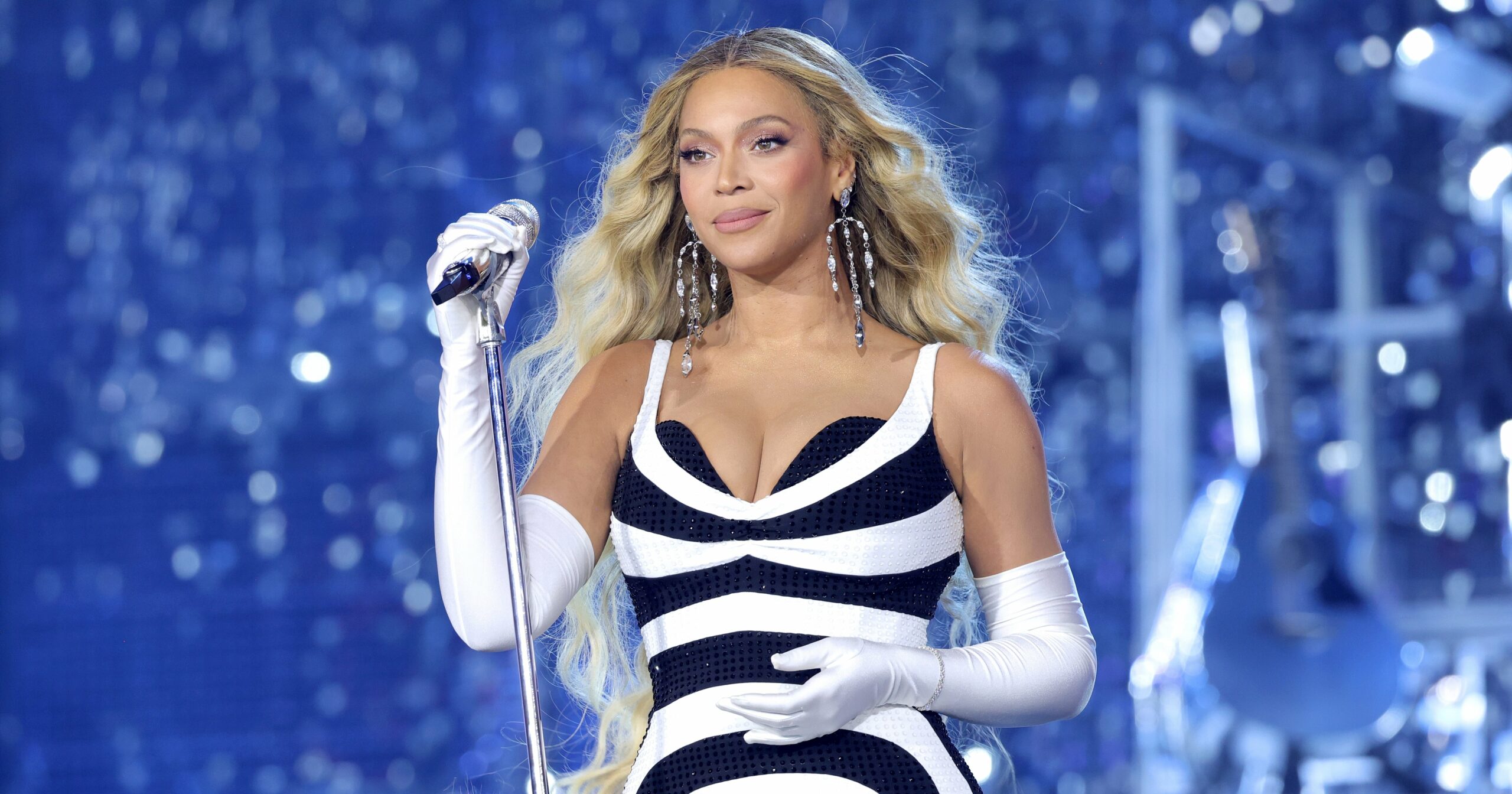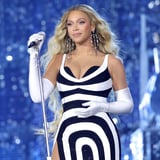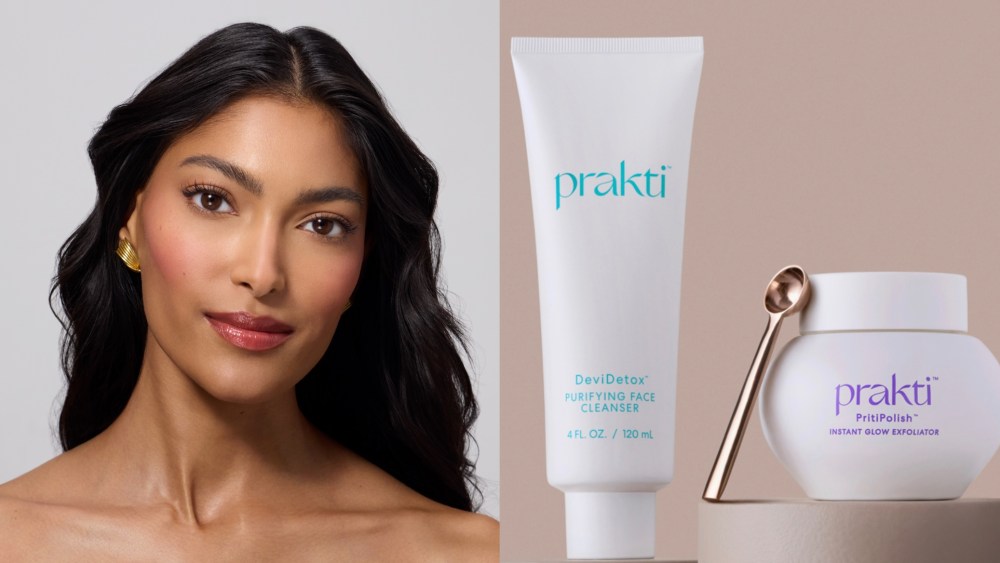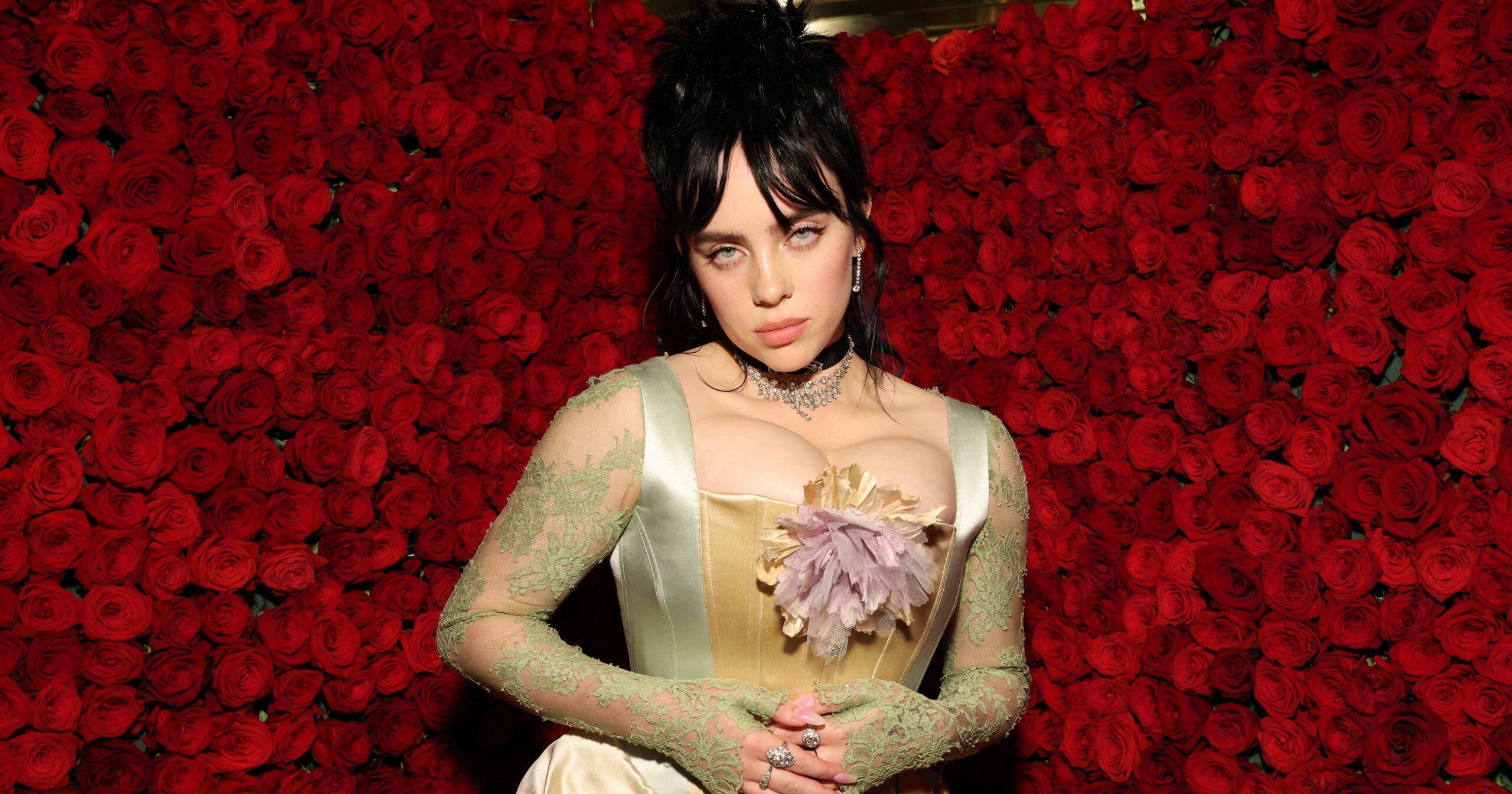Image Source: Getty/Kevin Mazur / Contributor
Another day, another onslaught of unnecessary commentary about a Black woman and her hair. On Nov. 25, Beyoncé hosted a star-studded red carpet for the world premiere of “Renaissance: A Film By Beyoncé.” Though she personally opted to skip the carpet itself, she later posted a picture of her look for the event to her website. In it, she was wearing a silver dress and gloves, her usual soft-glam makeup, and platinum-blond hair.
Beyoncé has been known for her signature honey-blond hair color for most of her career, so it makes sense that such a drastic change would get fans talking (even though the transformation is likely courtesy of a wig). Still, you would think that people would put the pieces together and see that her new look is in keeping with the “Renaissance” theme and on-trend with the unofficial uniform to wear as an attendee of her tour. You probably even assumed that they would have taken a beat to see that the look adhered perfectly to the dress code for the premiere, which was “cozy opulence.” However, in both instances, you’d be wrong because one of the main takeaways that people concluded from those pictures is that Beyoncé wanted to be white.
Yes, seriously. From people outright saying that they hated her hair to others claiming that she lightened it and her skin (someone even referred to her as “transracial”), there have been some incredibly vocal reactions to how Beyoncé decided to show up to her own event. The comments were so vile that Beyoncé’s mother, Tina Knowles, took to Instagram to share a few choice words regarding the topic. It’s one thing to have an opinion on a celebrity’s fashion and beauty choices; it’s another to attack someone over their race and cultural identity because you don’t like the way that they look.
For years, Black women have had to defend their appearances, especially when it comes to the way they wear their hair. From Jada Pinkett Smith being the subject of a cruel joke at the Oscars as she battles alopecia to Beyoncé’s own daughter, Blue Ivy, being ridiculed by adults for the texture of her natural hair, it feels like Black women are constantly under a microscope in a way that many other people are not. This criticism has become so normalized, that people feel comfortable letting their most cruel thoughts sit under a celebrity’s image on social media for everyone to see.
As public figures, celebrities like Beyoncé have likely developed thick skin from years of criticism being aimed at them. However, other Black women are seeing these comments. The thinly veiled disgust when discussing natural type-four hair, the horror when a Black woman dares to deviate from the norm and wear a bold hair color, and the unnecessary and downright mean comments shared if someone’s wig isn’t laid perfectly only serve to further paint Black people as a monolith, an idea that we’re all still fighting to dismantle in greater society. So, as much as you may feel like you simply have to let Beyoncé know how you feel about her hair and other beauty choices, remember the old adage: if you have nothing nice to say, don’t say it at all.



